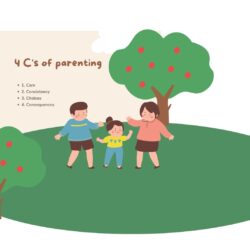Conflict is a natural part of life, and learning how to resolve it effectively is a crucial skill for teens. Whether it’s disagreements with friends, misunderstandings with family, or challenges in school, mastering conflict resolution can help teens navigate life with confidence and build healthier relationships.
Here are the must-have conflict resolution skills every teen should develop:
1. Active Listening
Active listening is more than just hearing words—it’s about truly understanding the other person’s perspective. Teens can practice active listening by:
- Making eye contact.
- Avoiding interruptions.
- Repeating back what they’ve heard to ensure understanding.
Encouraging teens to focus on what’s being said rather than formulating a response right away can reduce misunderstandings and foster empathy.
2. Empathy
Empathy helps teens step into someone else’s shoes and view the situation from their perspective. By acknowledging the other person’s feelings and experiences, teens can approach conflicts with compassion rather than defensiveness.
3. Effective Communication
Clear and respectful communication is key to resolving any disagreement. Teach teens to:
- Use “I” statements, such as “I feel upset when…” instead of blaming with “You always…”
- Stay calm and avoid raising their voice.
- Choose their words carefully to avoid escalating the situation.
4. Problem-Solving Skills
Encourage teens to focus on finding solutions rather than dwelling on the problem. A collaborative approach—where both sides work together to identify a win-win resolution—can strengthen relationships and prevent future conflicts.
5. Managing Emotions
It’s natural to feel upset during a conflict, but teaching teens to manage their emotions is essential. Techniques such as taking deep breaths, stepping away to cool down, or journaling their thoughts can help them process emotions constructively.
6. Understanding Boundaries
Respecting personal boundaries and setting their own is another critical aspect of conflict resolution. Teens should learn to:
- Say “no” when needed.
- Respect others’ limits without taking it personally.
7. Seeking Help When Needed
Sometimes, conflicts can feel overwhelming. Encourage teens to seek guidance from a trusted adult, like a parent, teacher, or school counselor, when they need additional support. Knowing when to ask for help is a sign of strength, not weakness.
Benefits of Conflict Resolution Skills for Teens
When teens learn how to handle conflicts effectively, they’re better equipped to:
- Build stronger friendships and relationships.
- Reduce stress and anxiety in social situations.
- Develop critical thinking and emotional intelligence.
- Navigate future challenges in personal and professional settings.
Tips for Parents to Support Teens
As a parent, you play a vital role in helping your teen develop conflict resolution skills. Here are some practical ways to support them:
- Model Healthy Conflict Resolution: Show your teen how you handle disagreements in a calm and constructive manner.
- Encourage Open Dialogue: Create a safe space where your teen feels comfortable sharing their feelings and concerns without fear of judgment.
- Role-Play Scenarios: Practice common conflict situations together and brainstorm possible resolutions.
- Praise Their Efforts: Celebrate your teen’s progress in resolving conflicts, even if the outcome isn’t perfect.
By equipping teens with these essential skills, parents can help them become confident, empathetic individuals who can navigate life’s challenges with grace.
Empowering teens with conflict resolution skills is an investment in their future. Not only does it help them build meaningful relationships now, but it also prepares them for success in adulthood. Start fostering these skills today, and watch your teen thrive in all areas of life!





